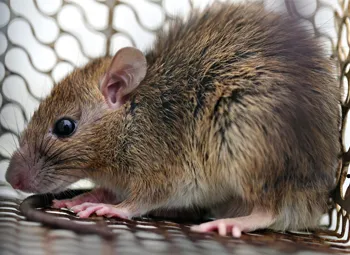e

The monsoons bring much-needed relief from the sweltering summer heat, replenishing reservoirs and supporting agriculture. However, they also introduce a variety of infections. While not all monsoon illnesses are severe, timely treatment is crucial to prevent complications. Our medical team tour2wellness provides top-notch treatment and guidance on necessary monsoon precautions. Here's what you need to know about common monsoon illnesses and their prevention.
Common Cold and Cough
The monsoon's cold, humid weather can lead to respiratory illnesses. Symptoms include a runny nose, sneezing, coughing, throat irritation, and difficulty swallowing, sometimes accompanied by a low-grade fever. It's important to consult your family doctor before taking any medication. Drinking warm water and regular gargling can soothe your throat.
Mosquito-Borne Diseases
Stagnant water during monsoon serves as a breeding ground for mosquitoes carrying diseases like dengue, chikungunya, and malaria. Symptoms include high fever, chills, muscle weakness, and pain. Malaria can be life-threatening if untreated, while dengue causes a dangerous drop in blood platelet levels, and chikungunya leads to inflamed joints. Prevent these diseases by controlling mosquito breeding and seek prompt medical treatment if symptoms appear.
Viral Fever
Influenza, or flu, is common during the monsoon and often accompanies cold and cough. It spreads easily from person to person. Rest and fever medications can help, but consult your doctor if you experience fever and weakness.
Digestive System Infections
Monsoon can compromise water quality, leading to stomach infections. Common infections include:
⦁ Dysentery and Diarrhea: Caused by amoebic or bacterial infections, symptoms include stomach pain, loose motions, and nausea. Proper medication and hydration are crucial.
⦁ Typhoid: A serious bacterial infection with symptoms like high fever, stomach pain, nausea, and vomiting. Immediate medical treatment is essential.
⦁ Hepatitis A and Jaundice: Hepatitis A is a virus causing liver inflammation, resulting in jaundice. Symptoms include yellow eyes, dark urine, pale stools, and stomach pain. Vaccination and good hygiene can prevent this illness.

Leptospirosis
Leptospirosis is a highly infectious disease affecting both animals and humans, recognized as one of the most prevalent zoonotic infections worldwide. It spreads readily from infected animals primarily through their urine, whether through direct contact or via contaminated soil or water sources. This bacterial infection poses significant health risks and underscores the importance of preventive measures to mitigate its transmission and impact on public health.
Skin Allergies and Infections
High humidity during monsoon can trigger skin allergies, especially in those with weak immunity or diabetes. Fungal, yeast, or bacterial infections are common. Keep your skin dry and wear loose clothing to minimize the risk.
Monsoon Precautions
Simple measures can prevent monsoon diseases:
⦁ Carry an umbrella or raincoat to avoid getting wet.
⦁ Dry off quickly if you get wet and stay warm.
⦁ Stay hydrated despite reduced thirst.
⦁ Use mosquito repellents and nets.
⦁ Maintain cleanliness to prevent mosquito breeding.
⦁ Drink boiled and filtered water.
⦁ Eat nutritious, home-cooked food.
⦁ Practice good hygiene by washing hands regularly.
⦁ Get vaccinated and avoid contact with infected individuals.
⦁ Wear a mask and practice social distancing to prevent airborne infections.
⦁ Take vitamin supplements if necessary.
Conclusion
Monsoon's lack of sunlight and humid conditions can lead to various diseases spread through air, water, or mosquito bites. Taking preventive steps is crucial. Simple and easy-to-follow tips can help you stay safe and enjoy the monsoon season. Pregnant women, young children, and infants are particularly vulnerable and should be extra cautious. Consult your doctor if you or a family member experience symptoms of monsoon illnesses. Prevention is always better than cure. Stay protected and enjoy the monsoon season!
Read more blogs on our website: https://tour2wellness.com/blog-monsoon-health-guide.html




